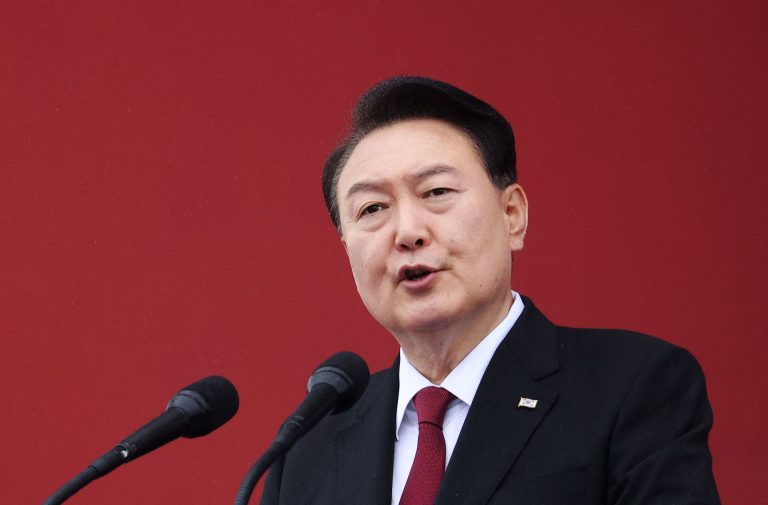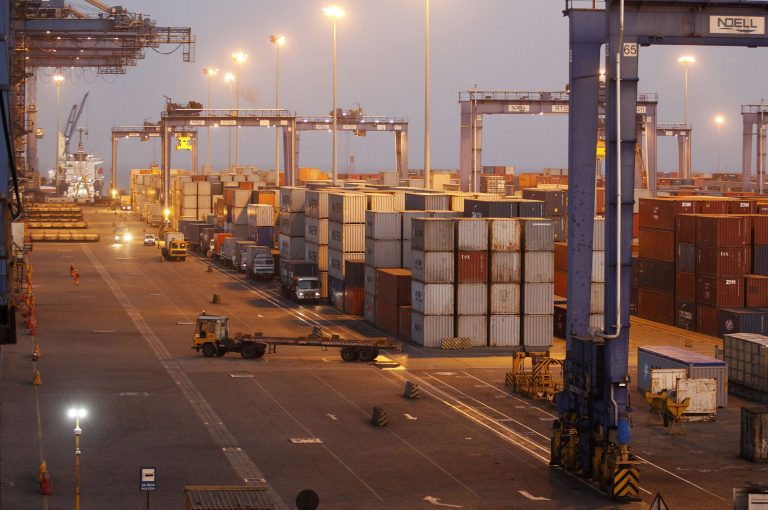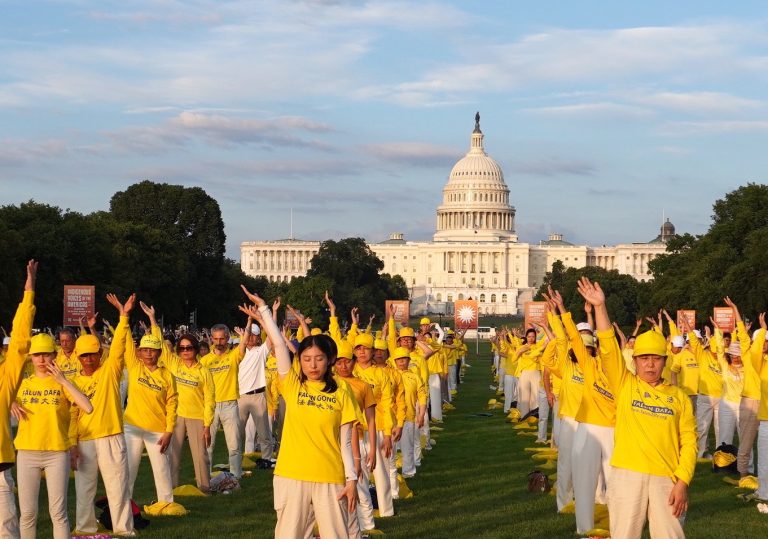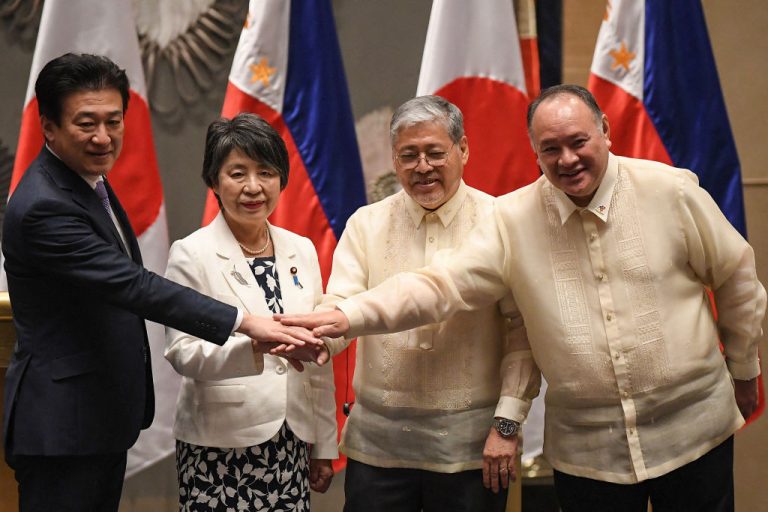The Republic of Korea celebrated the 75th anniversary marking the establishment of its armed forces with a full-fledged military parade on Sept. 26. More than 3,700 soldiers and nearly 200 pieces of advanced hardware, including tanks and truck-mounted tactical missiles, coursed through the streets of Seongnam, a southeastern district in Korea’s capital of Seoul.
In remarks delivered ahead of the parade, ROK President Yoon Suk-yeol highlighted the “practical combat capabilities and firm military readiness” of his country’s troops in the face of the “existential challenge” posed by the nuclear arsenal and provocations of totalitarian North Korea.
“If North Korea uses nuclear weapons, its regime will be brought to an end by an overwhelming response from the ROK-U.S. alliance,” Yoon said.
The right-wing Yoon administration, which assumed office in May 2022, has advocated a harder line on Pyongyang’s military provocations, as well as stronger ties with Japan and the U.S., and other allied countries in Asia.
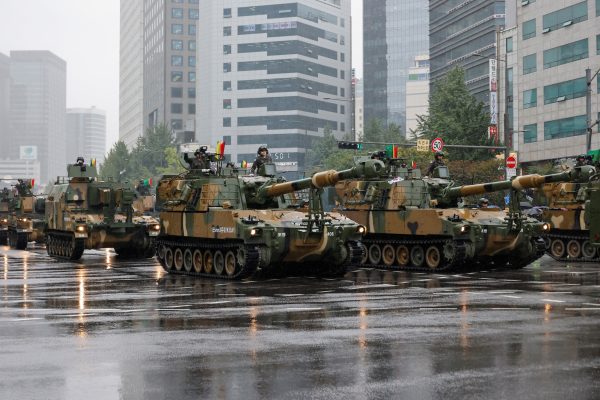
Seoul’s shifting diplomatic stance also comes in the backdrop of rising geopolitical tensions between the U.S. and Communist China, which has in turn been bolstering its cooperation with North Korea and Russia.
‘Security and economy are one’
Success
You are now signed up for our newsletter
Success
Check your email to complete sign up
Korea was divided into Soviet and American zones of control at the end of World War II in 1945 and experienced a devastating civil war from 1950 to 1953 when North Korea invaded the south in an attempt to unify the nation under communist rule. The two countries remain technically at war despite a ceasefire agreement.
On Sept. 26, the same day as Yoon made his remarks, North Korean ambassador to the United Nations Kim Song claimed that recent actions of the U.S. and South Korea, which he called an American “colony,” have pushed the situation “closer to the brink of a nuclear war.”
As part of the ROK Armed Forces Day events, on Sunday, Oct. 1, Yoon visited the headquarters of the 25th Infantry Division, a unit tasked with guarding the front line north of Seoul.
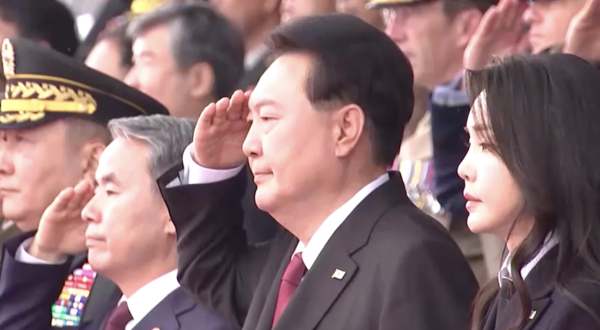
The president emphasized that “security and economy are one,” as reported by the mainstream Korean paper JoongAng Daily. “When the military protects national security with great strength, the people can have trust and engage in economic activities, create jobs and grow,” Yoon said while at the border.
“Do not hesitate for a second to respond” against incursions by North Korean aerial drones, he told the troops.
North Korean authorities have long played up their nuclear arsenal, wielding it as a diplomatic tool to wrest concessions from Seoul, the U.S., and other countries. Pyongyang routinely test-fires ballistic missiles and has detonated six atomic bombs in underground demonstrations since 2006.
Ramping up pressure
Following the democratization of the ROK and the end of the Cold War, some South Korean administrations sought inter-Korean reconciliation as a means of influencing and engaging the north.
Previous programs to foster friendship between the two Koreas resulted in visits between relatives divided by the war, South Korean industrial development of Kaesong, a North Korean city on the border, and other exchanges.
In 2018, amidst efforts by the Trump administration to broker a formal peace deal between north and south, then-ROK President Moon Jae-in, of the Democratic Party, signed a military deal with North Korea to “end hostility” and “take substantial steps to make the Korean Peninsula a permanent peace zone.”
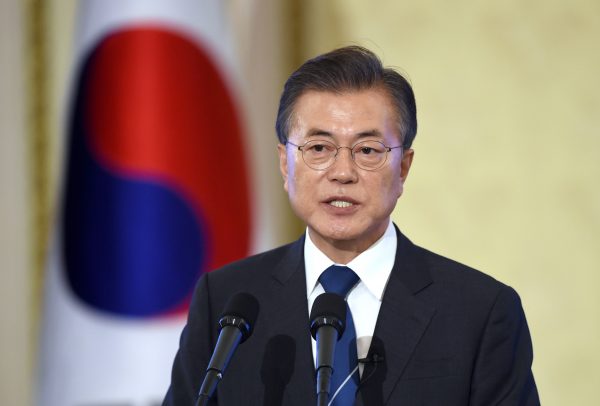
But renewed belligerence by Pyongyang, as well as the continued expansion of its nuclear arsenal, undermined such efforts.
North Korean leader Kim Jong Un recently visited Russia by train, touring various military and industrial facilities in Siberia. Meeting with Russian President Vladimir Putin, Kim is expected to soon conclude deals for newer Russian satellite and aerospace technology, in exchange for supplying Moscow with artillery shells for its ongoing war in Ukraine.
The Yoon administration seeks to pressure North Korea to give up its nuclear weapons, as the conservative wing of ROK politics holds that excessive engagement only encourages Pyongyang to buy time through false promises.
“North Korea is the only country to conduct a nuclear test in the 21st century, and it has been also escalating tensions by testing an intercontinental ballistic missile [ICBM] this year”, Kim Sang-jin, South Korea’s Deputy Permanent Representative to the U.N, responded to his northern counterpart’s Sept. 26 comments blaming Seoul for inching tensions closer to nuclear war.
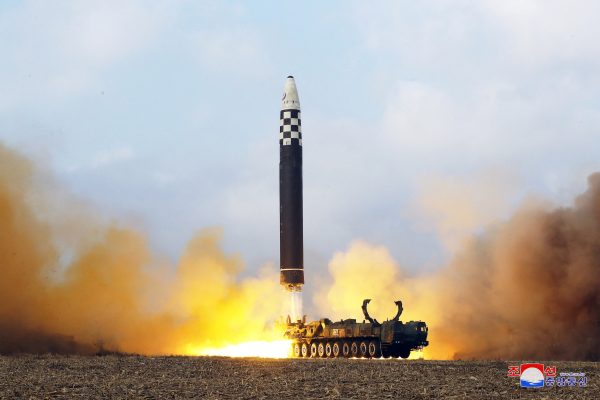
On Sept. 21, the ROK National Assembly voted to arrest its opposition leader Lee Jae-myung on bribery charges involving a North Korea-linked group. Previously this summer, Lee was criticized for a meeting with Chinese ambassador to South Korea, Xing Haiming, in which Beijing’s diplomat attempted to persuade him not to engage in “decoupling” from the People’s Republic.
South Korean trade with China, once a cornerstone of the economy, has fallen greatly in recent years owing to the pandemic and heightened tensions.
Boosting alliances
Of particular concern to Pyongyang are military exercises held between ROK and U.S. forces, which it claims are preparations for an invasion of the north. Tens of thousands of American troops are stationed in South Korea as insurance against a restart of the Korean War, and the two militaries routinely practice with each other to maintain interoperability and cohesion in the event of conflict.
In February, the Yoon administration issued a white paper describing North Korea as an “enemy,” the first time the South Korean government did so in six years. China was also mentioned, but not as a direct threat.
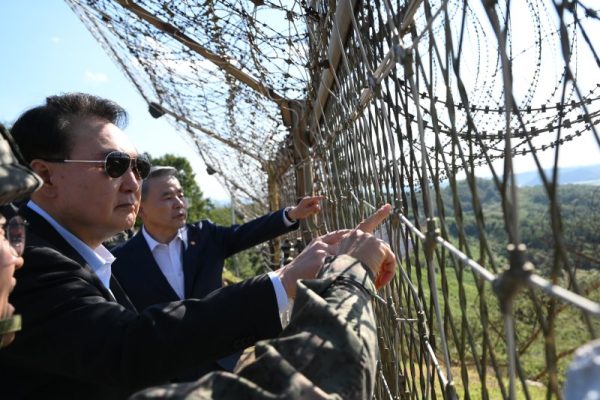
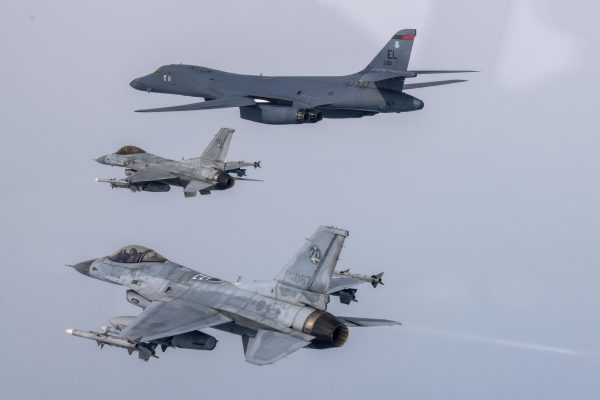
Both North and South Korea claim the entirety of the Korean peninsula, and their armies are among the largest in the world. All able-bodied South Korean men must serve two years in the armed forces, while the north keeps around 20 percent of its population under arms as a militia, though in practice they perform manual labor and other non-military duties.
While continuing to hold military exercises in conjunction with the U.S. armed forces, which has tens of thousands of troops stationed in South Korea, the Yoon administration has been actively improving relations with Japan, a sensitive subject in domestic politics given the atrocities committed by the Imperial Japanese occupiers in the 20th century up to the end of World War II.
In March, Yoon became the first South Korean president in 12 years to make a bilateral visit to Japan, meeting with Japanese Prime Minister Kumio Kishida. The Korean and Japanese leaders later met at Camp David for a three-way summit with U.S. President Joe Biden on Aug. 18.
On Oct. 5, the ROK foreign ministry announced a “strategic dialogue” between South Korea’s First Vice Foreign Minister Chang Ho-jin and Japanese counterpart Masataka Okano — the first such meeting in nine years — as reported by the Yonhap News Agency.



